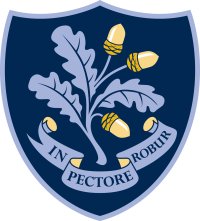 ESIP is committed to making a difference, not just to our students, but to our schools and society as a whole, now and in the long term. Intervention should produce medium and long term impact as well as short term gains.
ESIP is committed to making a difference, not just to our students, but to our schools and society as a whole, now and in the long term. Intervention should produce medium and long term impact as well as short term gains.
ESIP - In Our Own Words (video - November 2013)
The Value of Crafty Listening (video - November 2013)
Read the 2012/13 Annual Report incling feedback and an assessment of the first two years of the programme.
Read our 2011/12 Annual Report including feedback from students, parents, mentors and teachers or find out what others, including our funders, think about us.
So how are we doing on our four outcomes?
We believe it is all about the ability to do something, the belief you can do it and the character to get it done. ESIP’s ABC model underpins everything we do.
What ESIP Has Done For Me (video interviews)
Melanie (Year Eight) - May 2013
Kira (Year Eight) - February 2013
Maya (Year Nine) - November 2012
- Increasing aspiration - The girls have a clearer focus, confidence in their individual aspiration, a desire to set goals, a realisation that achievement and success do not come easy, the drive to be the best that they can be and realise they are individuals with their own goals (not just their parents/schools/society’s)
- Increasing achievement - Results are above average for the year and ability group (2.34 sub-levels English, 3.17 sub-levels Maths compared to 1.5-2.0 expected increase). Evidence of new extra-curricular activities and taking on challenges in the community including conflict resolution and supporting students older than themselves.
- Improving learning capability - Becoming self-aware, realising why they need to work hard (which increases motivation), learning and developing the tools to work smarter, understanding their strengths and weaknesses and that they are capable.
- Improving resilience - Building the confidence to carry on, becoming comfortable with being uncomfortable, facing up to challenges.
The difference we make - views from four Year 9 students in Spring 2013
- When I started ESIP I was… fixed minded, thinking that this would go this way, things would go that way. Where I am right now… a lot more open minded, more open to new ideas though not completely. I know that failure is what makes up success. That you can’t wait for change to happen, you have to make it.
- When I started ESIP I was… not sociable, not confident, not positive, shy and not capable. How I act at the moment… more cooperative, confident, positive and talkative and more comfortable.
- When I started ESIP I was… extremely unconfident. This made me hesitate when trying out new things (or stopped me completely). Where I am right now… In my head I am a confident person who just needs a little help to show it. No matter how nervous I feel before doing something, I say to myself that I can do it and I will do it.
- When I started ESIP I was… timid, quiet, well-behaved. Where I act at the moment… well-behaved but more open, more confident, more experimental
There are many education interventions which make a difference here and now. In addition to that we want to make a long term impact on our students. Two years in it's too early to say but here's what a former student of a programme similar to ESIP said about it's impact, seven years on from starting the programme.
"The Urban Scholars Intervention Programme has transformed the way in which I study and interact with those around me in a professional environment, through teaching me methods of gaining confidence and self awareness; and teaching me to believe that I can work to help others in a career that I would both enjoy and would support those in need around me.
Prior to attending the programme, I was certainly able in my studies, but lacked the self-assurance to work together freely and without apprehension, with classmates and teachers. This often led to my learning being disadvantaged.
Throughout the programme, lessons in drama, art and english allowed me to explore my interests in an unconventional manner, and discover how traditional subjects are related to career paths, and the consequences of the career I will subsequently choose. This was particularly helped by various guest speakers who inspired us to think differently about stigmatisms and stereotypes regarding those who are different to us, perhaps in political or religious stances.
Attending Urban Scholars has allowed me to achieve more in my academic studies than I thought was possible, and has aided me in practical circumstances such as interviews for sixth form and university places. As a result of this, I am currently studying International Politics and considering a career in humanitarian aid or international journalism – a career path that I would not have considered before the programme."
(Y8-10 Urban Scholar at CLSG, 2006-2009; quoted May 2013 in first year of undergraduate degree)
ESIP is based on the learning and experience from the Urban Scholars Intervention Programme and operates under the same Programme Leader for that period, Dr Simon Davey.




